Decoding the Rex: An In-depth Look at the Rex Guinea Pig Breed
Are you a guinea pig owner or considering getting one? In this blog we dive into the unique and fascinating world of the Rex guinea pig breed!

Key Takeaways:
- Understand the unique characteristics of the rex guinea pig breed, including their distinct curly coat and care requirements.
- Learn about the dietary needs specific to rex guinea pigs to maintain their health and vitality.
- Discover how the rex guinea pig compares to other guinea pig breeds and why they make excellent pets.
Guinea pigs have long been cherished as delightful companions, and among the various breeds, the rex guinea pig stands out with its unique charm. This breed, with its distinctive appearance and amiable nature, has won the hearts of small animal enthusiasts worldwide. But what exactly sets the rex guinea pig apart from its furry counterparts?
The Curly Charm of Rex Guinea Pigs
The rex guinea pig breed, also known as rex guineas, is renowned for its curly coat, which is plush and woolly to the touch. Unlike the Cornish Rex or Devon Rex in cats, which have a much softer coat, the rex guinea pig’s fur feels coarse. This is due to a genetic mutation that results in a lack of guard hairs, giving them a hedgehog-like appearance. Their curly whiskers further accentuate their endearing looks, making them a favorite among pet owners.
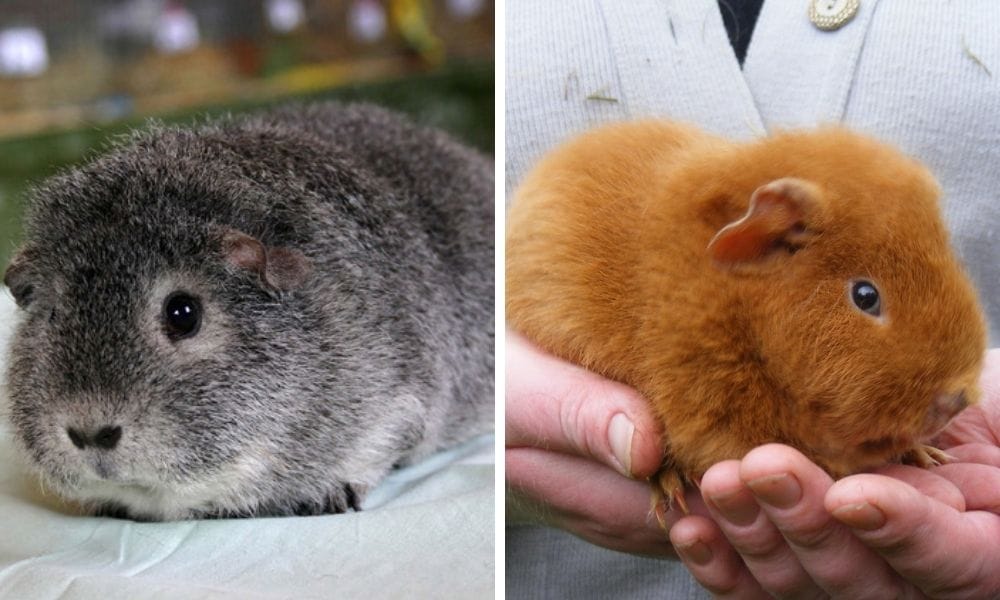
A Brief History: From South America to Our Homes
Originating from South America, guinea pigs, or 'cavies' as they are scientifically known, were first domesticated by Spanish explorers and brought to Europe. The rex guinea pig, however, was originally bred for livestock before becoming a beloved pet. Their lineage is a testament to the diversity of small animals that have been selectively bred for specific traits, such as the rex's distinctive curly coat.
Rex Guinea Pig Diet: What Do Rex Piggies Munch On?
A rex guinea pig diet should be rich in fiber, which is crucial for their digestive health. Fresh hay should be available at all times, providing a continuous supply of this essential nutrient. Additionally, fresh vegetables rich in vitamin C, like bell peppers and leafy greens, should be included daily, as guinea pigs do not naturally produce this vital vitamin.
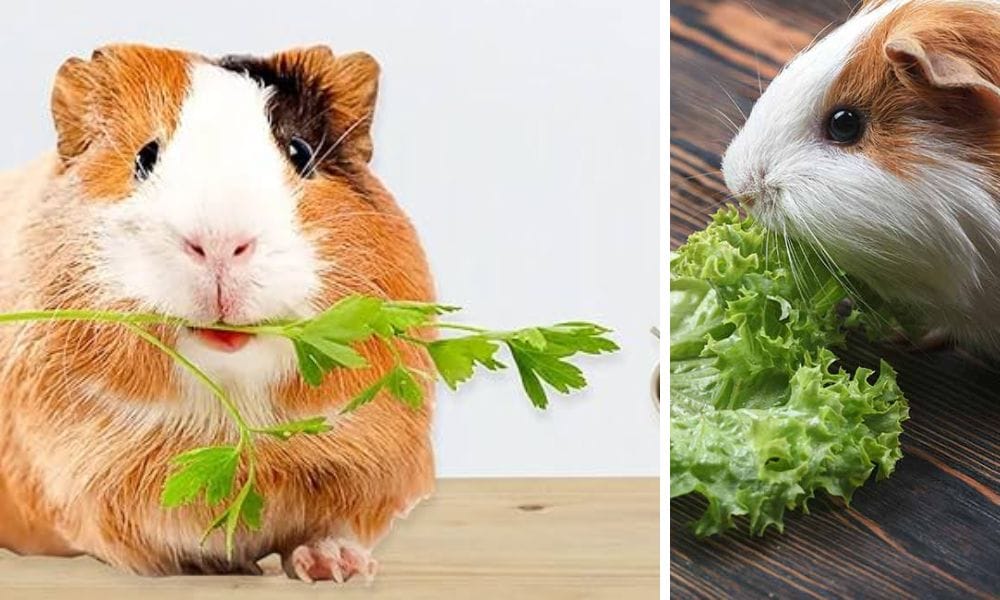
The Importance of Vitamin C
Vitamin C is particularly important for rex guinea pigs, as a deficiency can lead to serious health problems such as scurvy. Unlike other animals, guinea pigs cannot synthesize their own vitamin C and must obtain it from their diet. A lack of this nutrient can lead to weakened immunity and a host of other issues, making it essential to provide a diet rich in vitamin C.
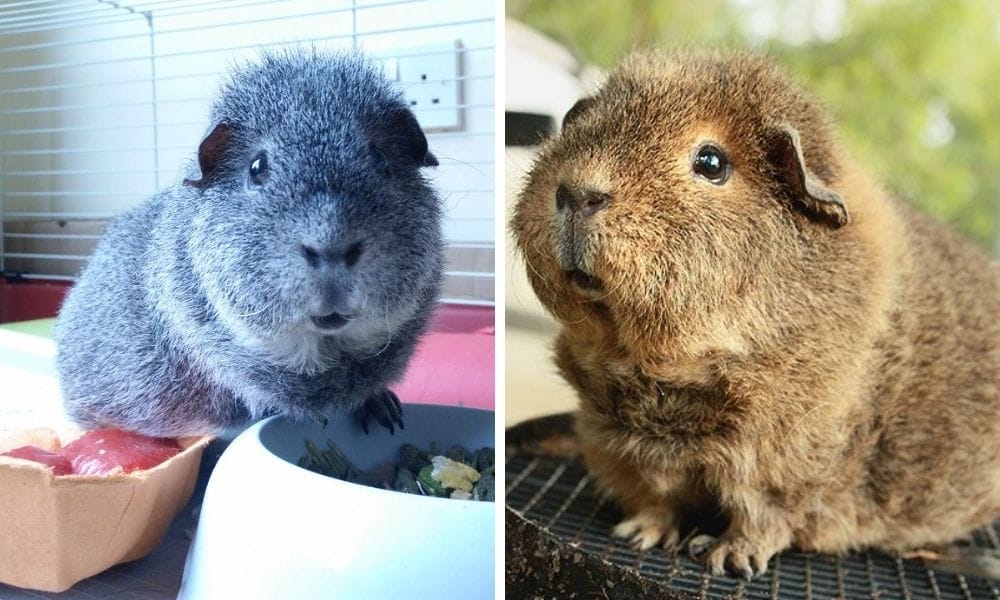
Grooming the Rex: More Than Just Aesthetics
Grooming a rex guinea pig involves more than keeping them looking their best. Regular use of a soft-bristled brush can help prevent mats and tangles in their curly fur. Brush gently to avoid hurting their skin, and always check for signs of parasites or skin infections, which can be more common in breeds with denser coats.
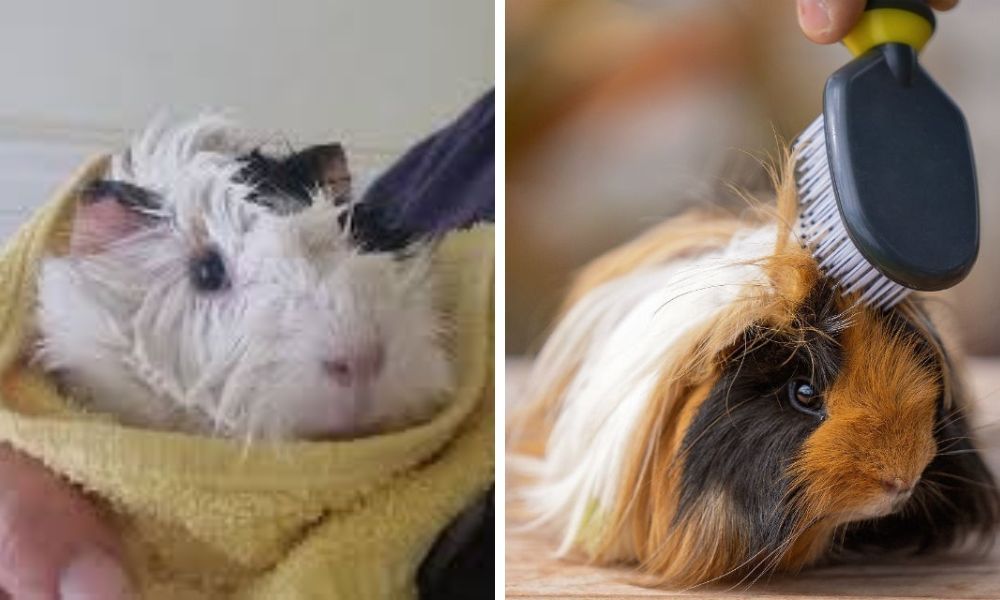
The Right Habitat for a Rex
When it comes to housing, rex guinea pigs require a larger enclosure than some other breeds due to their active nature. Cage size should allow for regular exercise, as well as space for hiding spots and toys. Ensure the cage is kept away from colder temperatures, as rex guinea pigs can be sensitive to the cold due to their unique coat.
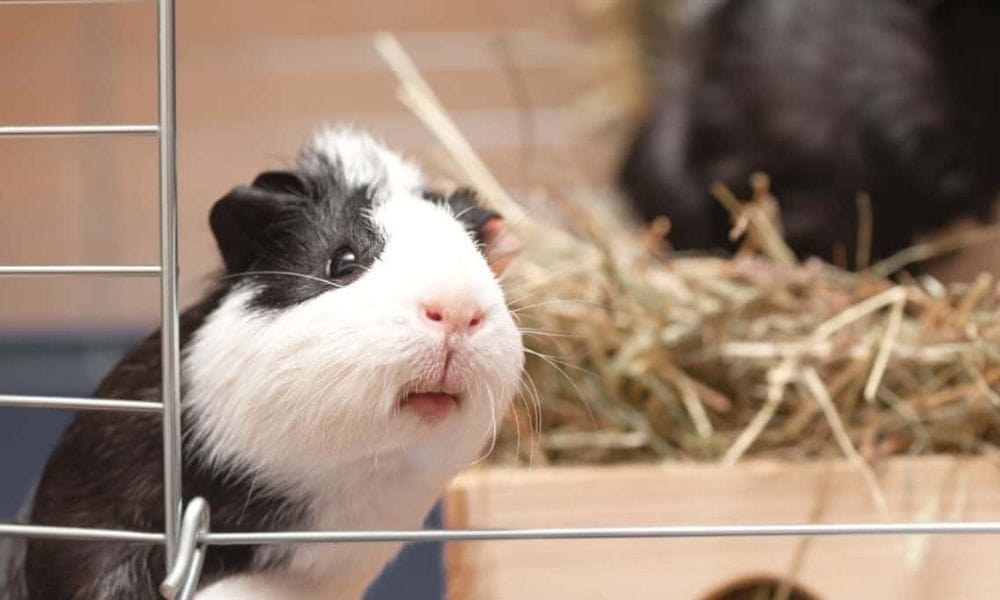
Understanding Rex Guinea Pig Behavior
Have you ever wondered if your Rex guinea pig's antics are typical? Well, let's dive into the world of these furry friends and decode their behavior. Rex guinea pigs are known for their playful and inquisitive nature. Unlike the teddy guinea pig, which may have a more laid-back demeanor, Rex guinea pigs often exhibit a zest for exploration.
They love to investigate new toys and will frequently engage with their environment in a lively manner. This curiosity makes them excellent pets for those who enjoy interactive companionship.
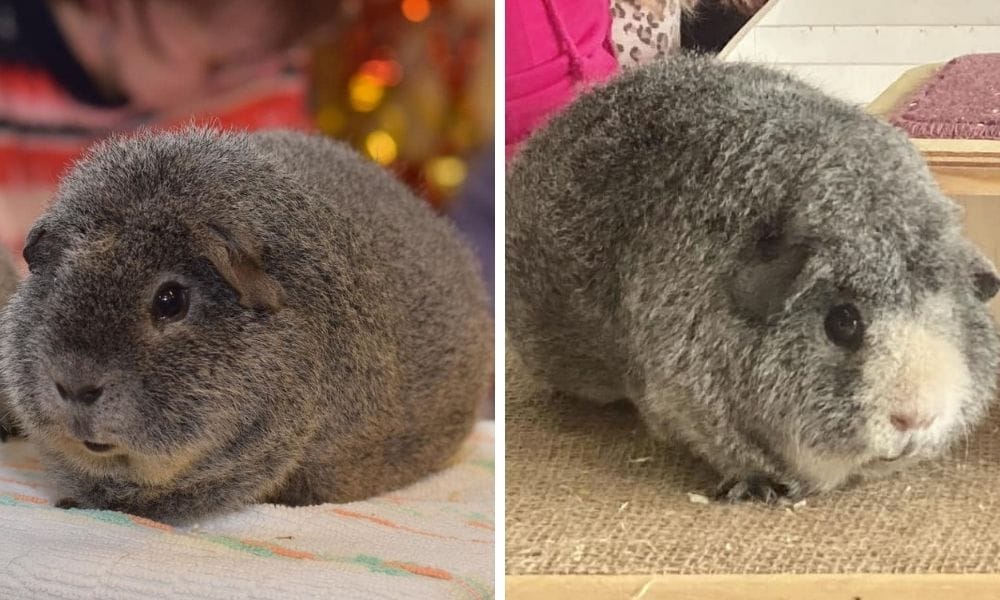
Moreover, understanding their behavior is crucial for bonding. For instance, if a Rex guinea pig is excited, it might perform little hops in the air, known as "popcorning." This is a sign of happiness and should be encouraged!
On the flip side, if they're feeling scared or threatened, they might freeze or try to hide. It's important to recognize these behaviors to ensure your pet feels safe and loved. Remember, while they don't have droopy ears or a hedgehog-like appearance to give away their mood, their actions speak volumes!
Understanding the Grooming Needs of Rex Guinea Pigs
Rex guinea pigs are quite the charmers with their unique, plush coats. But did you know that the rex's coat, which lacks guard hairs, requires special attention?
Unlike other guinea pigs, the rex's short hair doesn't protect as well against dirt and oils. This means that regular grooming with a soft-bristled brush is essential to keep their coat in tip-top shape. Not only does this prevent matting and keeps their fur looking spiffy, but it's also a delightful bonding experience for you and your pet.
When it comes to nail care, guinea pig's nails, including those of the rex, can grow quite long if not trimmed regularly. Overgrown nails can lead to discomfort and even health issues for your furry friend.
It's recommended to trim their nails every few weeks, but if you're unsure how to do it safely, a quick visit to the vet or a professional groomer can ensure your rex's paws stay in perfect condition. Remember, grooming is not just about looks; it's about maintaining the overall well-being of your beloved pet.
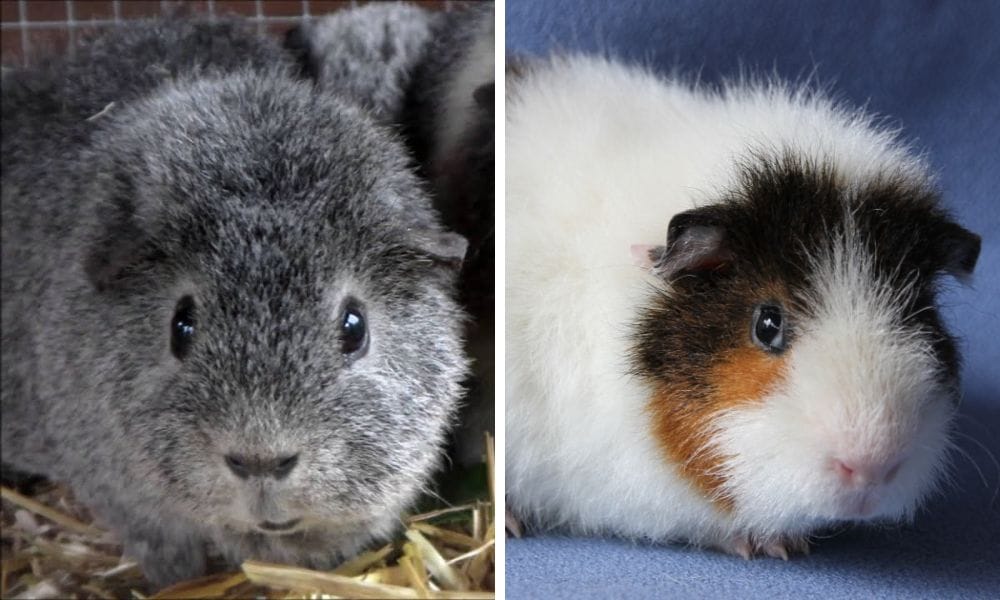
Rex Guinea Pigs in the Home: Are They Good Pets for Families?
Are rex guinea pigs good pets for families? Absolutely! Rex guineas are particularly noted for their friendly demeanor and suitability as pets for children. Their friendly and sociable nature makes them an excellent pet choice for households with or without children.
The rex guinea pig’s playful demeanor and hedgehog-like appearance can capture the hearts of both young and old. They thrive on interaction and can form strong bonds with their human companions, making them more than just pets—they become part of the family.
However, it’s important to note that while rex guinea pigs make for great companions, they do require a commitment to their care. From their specific guinea pigs diet needs to their social requirements, these little creatures depend on their owners for their well-being.
They don’t lay eggs, so breeding them also requires careful consideration and planning. Before heading to pet stores to bring home a rex, ensure your family is ready to provide the love and attention these delightful animals deserve.
Rex Guinea Pig Compatibility with Other Pets
Introducing a Rex guinea pig to your household can be a delightful experience, but how do they fare with other pets? First things first, it's essential to know that guinea pigs are social creatures and often enjoy the company of their kind. However, when it comes to other species, caution is key.
For example, while the forward growing hair and lack of guard hairs make the Rex's coat unique, it doesn't provide much protection against playful nips from other pets. Therefore, always supervise interactions with other animals, especially in the beginning.
If you're considering a companion for your Rex, another guinea pig is usually the best choice. They can bond and form a social group, which is beneficial for their well-being. However, introducing them to animals like dogs or cats can be tricky. These pets may see guinea pigs as prey due to their small size and quick movements.
Always introduce them slowly and in a controlled environment. And remember, opening a new window of friendship for your Rex should be done with patience and care to ensure a harmonious household.
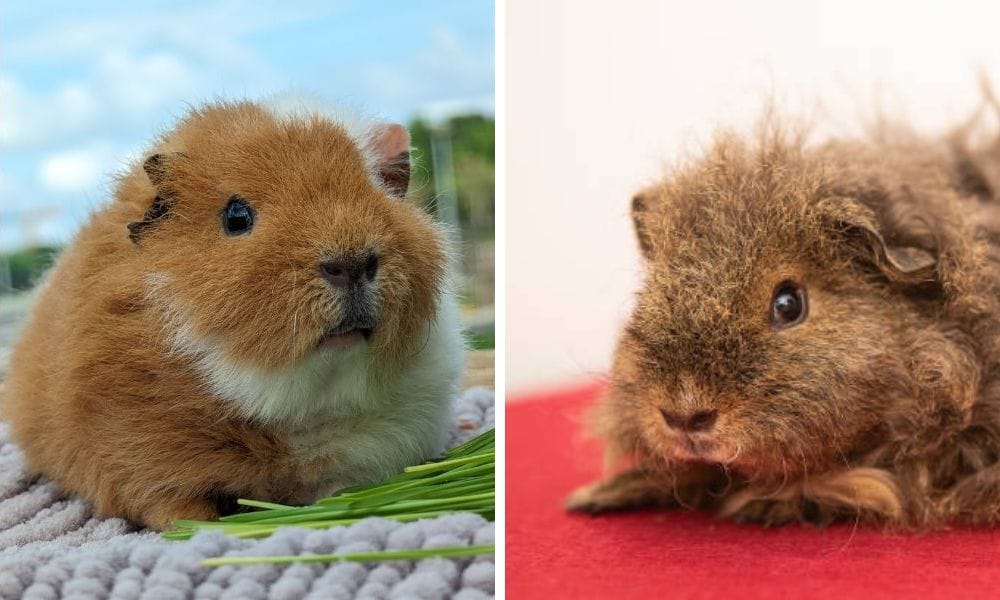
Social Butterflies: Rex Guinea Pigs and Their Friends
Rex guinea pigs are known for their sociable demeanor. They thrive in the company of other guinea pigs and can often be found cuddling or playing with their cage mates. Introducing rex piggies to other breeds should be done carefully to ensure compatibility, but generally, they make great companions for other guinea pigs.
Health Watch: Common Issues in Rex Guinea Pigs
While rex guinea pigs make great pets, they are prone to certain health problems. Respiratory infections, dental issues, and urinary problems are common concerns. Providing a clean environment, a balanced diet, and regular check-ups with a veterinarian can help keep these issues at bay.
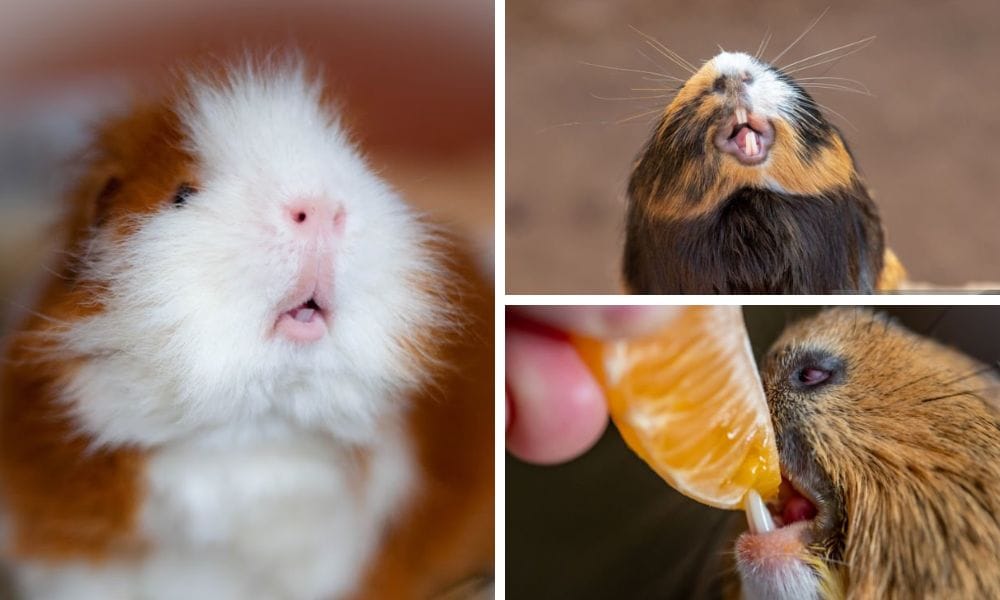
The Rex and Other Breeds: A Comparison
When comparing rex guinea pigs to other guinea pig breeds, such as the teddy guinea pigs or the largest guinea pig breeds, the rex's coat is the most distinguishing feature. Teddy guinea pigs also have a dense coat but with a much softer texture. The rex's coarse coat requires specific grooming needs that set them apart from other breeds.
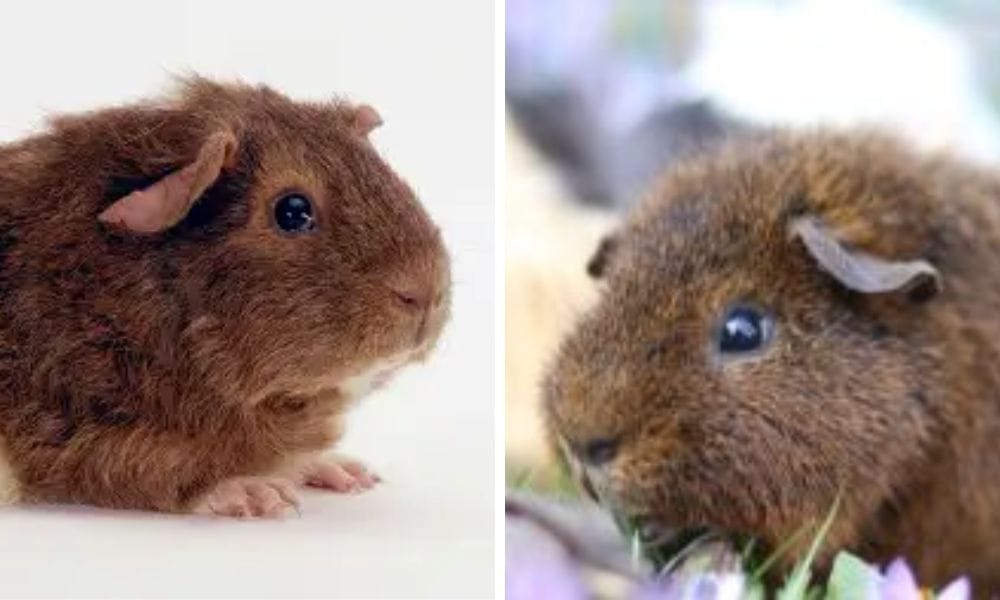
Exercise and Play: Keeping Your Rex Happy
Just like other guinea pigs, rex piggies need regular exercise to stay healthy. A spacious cage with room to roam, along with supervised playtime outside the cage, can provide the necessary activity. Toys and tunnels can also encourage movement and satisfy their natural curiosity.
Feeding Frenzy: The Rex Guinea Pig Diet in Detail
A rex guinea pig diet should consist of a variety of foods to ensure they receive all the necessary nutrients. A good balance includes a continuous supply of fresh hay, a small amount of high-quality guinea pig pellets, and a daily serving of fresh vegetables. Always provide clean drinking water, and avoid foods that can cause digestive upset.
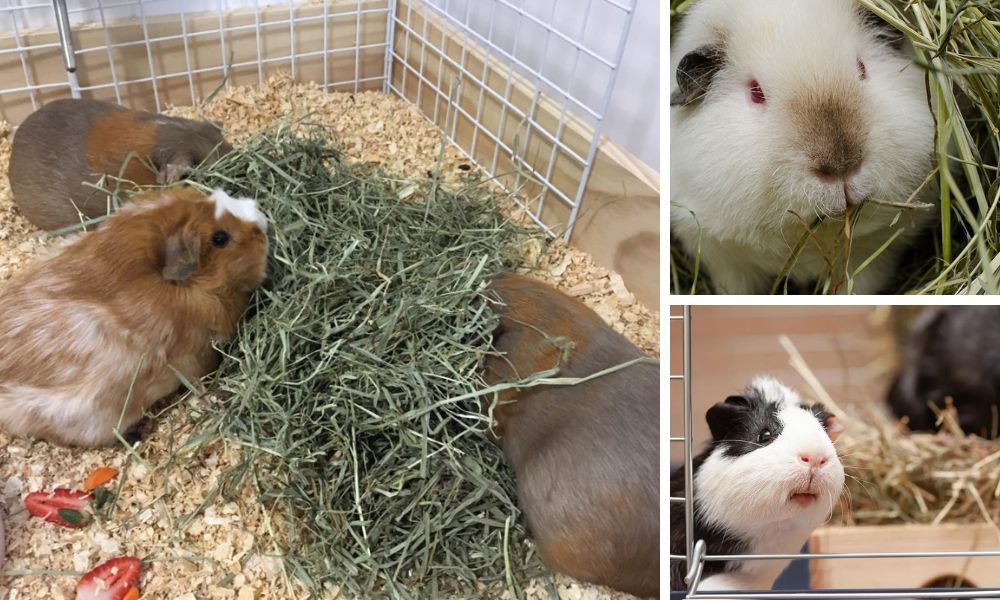
The Personality Plus: Each Rex Has Its Own
Every rex guinea pig has its own personality. Some may be outgoing and adventurous, while others are more reserved. Spending time with your pet will help you understand their unique character and how to best care for them. This bond is what makes rex piggies such excellent pets.
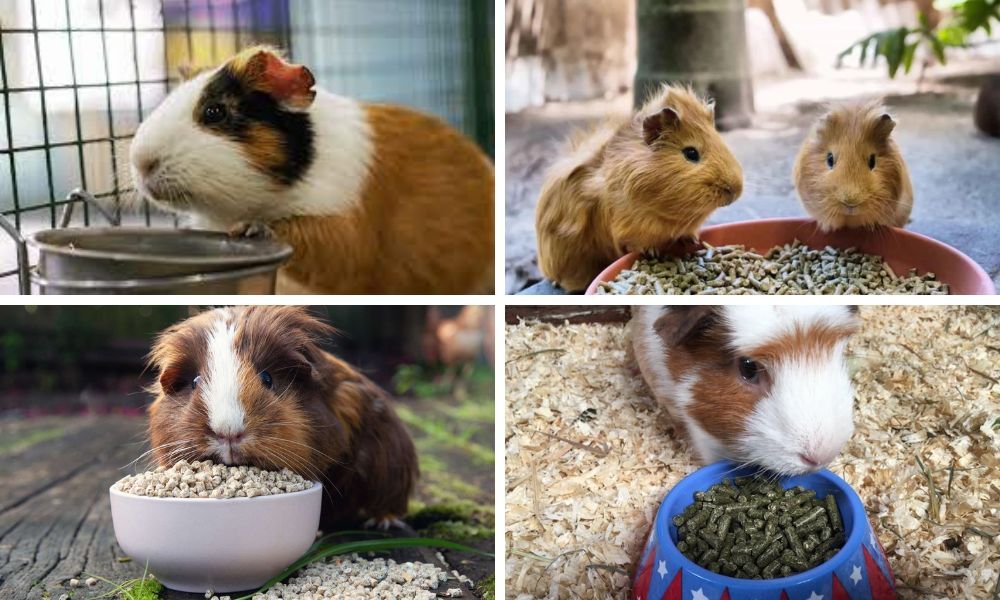
Summary
The rex guinea pig breed is a delightful and unique addition to the family of small animals. With their curly coat, sociable nature, and specific care requirements, they offer a rewarding experience for pet owners willing to provide the attention they need.
By understanding their dietary needs, grooming essentials, and social behavior, you can ensure a happy and healthy life for your rex guinea pig.
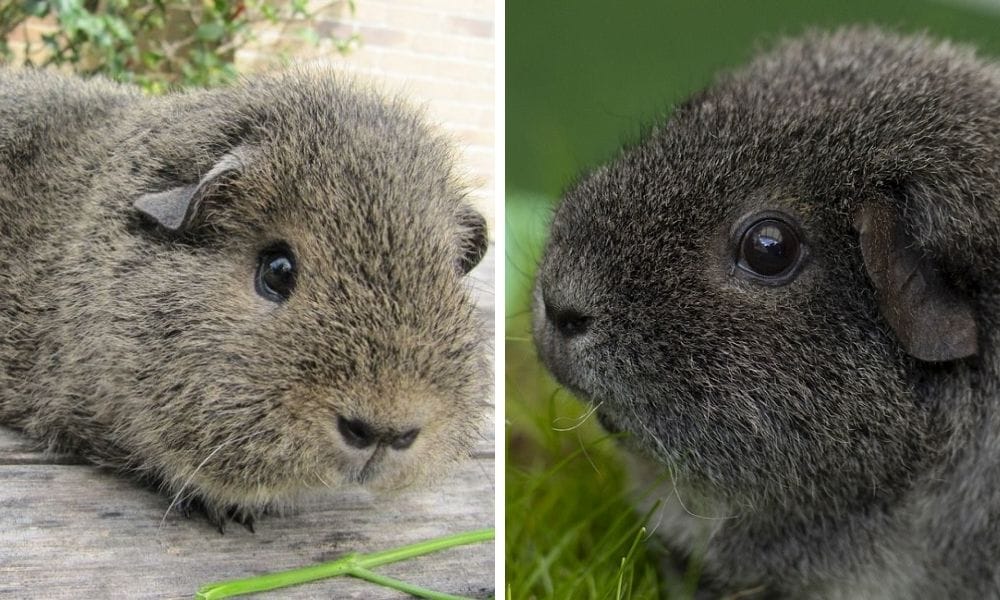
You can read more about the rex guinea pig in our other blog below.
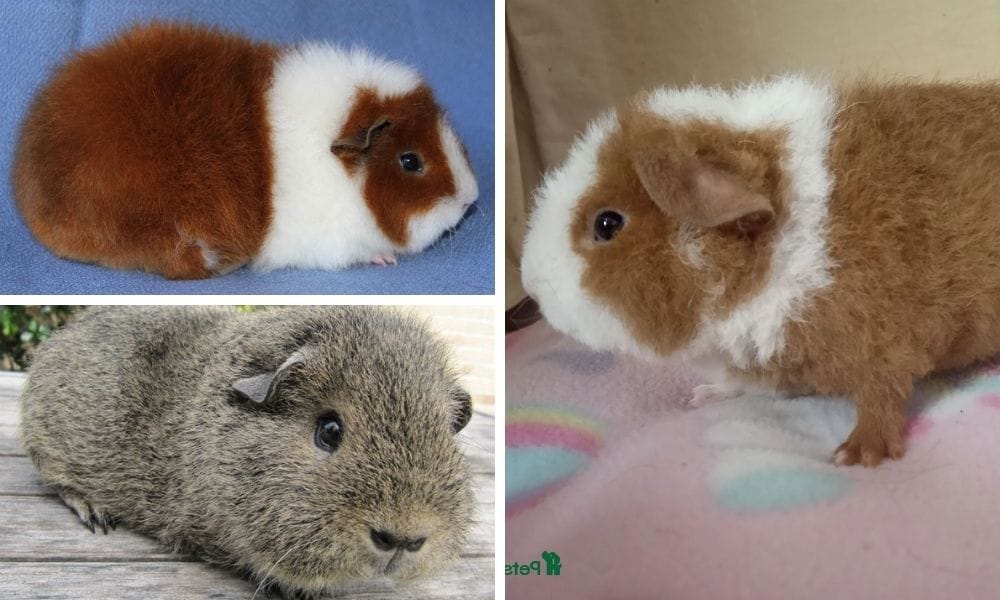
FAQ Section
Q: How often should I groom my rex guinea pig? A: Rex guinea pigs should be groomed at least once a week to keep their coat in good condition. Use a soft-bristled brush and be gentle to avoid skin irritation.
Q: Can rex guinea pigs live with other breeds of guinea pigs? A: Yes, rex guinea pigs can generally live with other guinea pig breeds. It's important to introduce them slowly and monitor their interactions to ensure they get along well.
Q: What is the ideal temperature for a rex guinea pig's habitat? A: Rex guinea pigs are sensitive to cold due to their unique coat. Their habitat should be kept at a comfortable room temperature, away from drafts and extreme temperatures.

